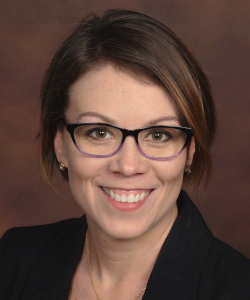First Person
Back Page: 2021 APS Entrepreneurship Poster Awards

The APS Psychological Science and Entrepreneurship Poster Award is intended to stimulate research in entrepreneurship, defined as the capacity and willingness to develop, organize, and manage a business venture, along with its risks, in the pursuit of opportunity and innovation. Offered for the second consecutive year in 2021, the award is backed by the generous support of the Ewing Marion Kauffman Foundation. The 2021 winners, who each received a $1,500 award, briefly describe their work below.

Early-career winner
Nikki Blacksmith
Blackhawke Behavior Science, USA
Diversity and Performance in the Entrepreneurial Ecosystem: A Case for Selection Research
Certain behaviors are necessary for entrepreneurs and start-up teams to succeed in their work. Coauthor Mo McCusker and I identified which personality, motivational, and cognitive traits underlie those behaviors.
There exists very little science on what predicts entrepreneurial success, which leads too many start-ups to fail. We draw from job performance and employee selection theories to identify predictive relationships between people’s attributes and their performance as entrepreneurs.
Three ideas really motivated us: (a) the scant amount of investor money that goes to female (< 3%) and underrepresented minority (< 1%) entrepreneurs; (b) the shockingly high number of start-ups that fail because of preventable human capital issues; and (c) the underrepresentation of industrial-organizational psychologists in the entrepreneurial ecosystem to fix these challenges. Our taxonomy lays a foundation for using research, science, and data to make the entrepreneurial ecosystem more diverse, data-driven, fair, and successful.
Our results are relevant to the public for two reasons. First, gone are the days of making business-related decisions based on gut or intuition. In today’s world, decisions need to be backed by data and science. Our results show that with research, hard work, and psychology (of course!), we can make better, more impactful data-driven decisions. Second, our results show there is no one-size-fits-all for being a successful entrepreneur. Entrepreneurs represent, as they should, all shapes, sizes, and backgrounds and have all kinds of knowledge and skills.
This research shows that with a little self-awareness, anyone can develop and grow the knowledge, skills, abilities, and other characteristics needed to succeed as an entrepreneur.

Student winner
Dohyung (Jacob) Cha
Seoul National University, Republic of Korea
Pleasurable Future Now, Painful Reality Later? Entrepreneurial Positive Future Thinking Predicts Stock Crashes in the Dot-Com Bubble (Burst), 1995–2001
If you plan to buy stock in an initial public offering, watch the offering prospectus’s words as well as its numbers. It is likely to betray your expectations if it is crowded with positively framed narratives about the future, according to studies of the dot-com crashes.
Economists have actively addressed the question of why dot-com crashes happened, but they (naturally) have tended to focus on socioeconomic factors. I sought to explore the psychology of this phenomenon and found that entrepreneurial cognition matters—especially how entrepreneurs frame their ideas and communicate them to investors.
I’m most excited about the generalizability of the findings. Honestly, I owe a huge intellectual debt to studies by Gabriele Oettingen and colleagues on “positive fantasy,” which found that U.S. presidents and journalists who tend to be overly optimistic may cost the economic future. I simply extended this wisdom into the entrepreneurial context. In another study (in progress), I found that the generalizability of the results extends into most publicly listed firms too.
The results are relevant to the public because “bubble” talk is once again everywhere because of central banks’ monetary easing. Though it is hard to predict when the market might crash, I suggest we learn from earlier dot-com bubbles. Moreover, even if we dodge the next bubble event, we can expect company-level stock crashes everywhere. Also, entrepreneurs tend to prop up their pitches with positivity, so I believe that the public should learn to discern warning signs from their words.
Registered attendees of the APS 2021 Virtual Convention can see all posters and flash talks until September 1.
Back Page showcases particularly interesting work by a wide variety of psychological scientists. Know of a good candidate for a future profile? Contact the Observer at [email protected].
Feedback on this article? Email [email protected] or post a comment.





APS regularly opens certain online articles for discussion on our website. Effective February 2021, you must be a logged-in APS member to post comments. By posting a comment, you agree to our Community Guidelines and the display of your profile information, including your name and affiliation. Any opinions, findings, conclusions, or recommendations present in article comments are those of the writers and do not necessarily reflect the views of APS or the article’s author. For more information, please see our Community Guidelines.
Please login with your APS account to comment.